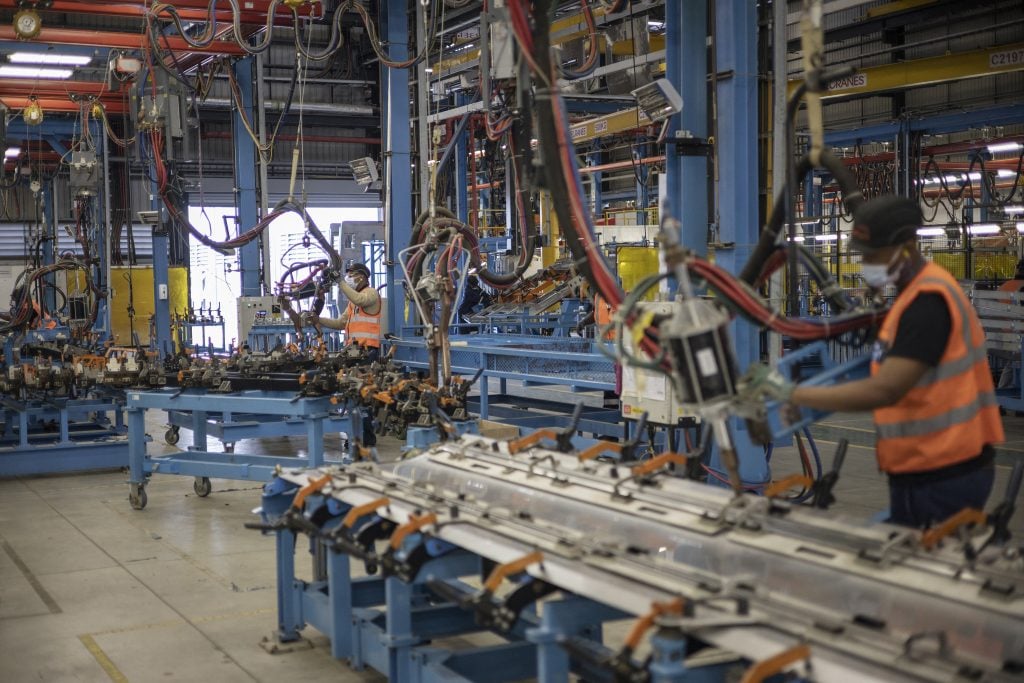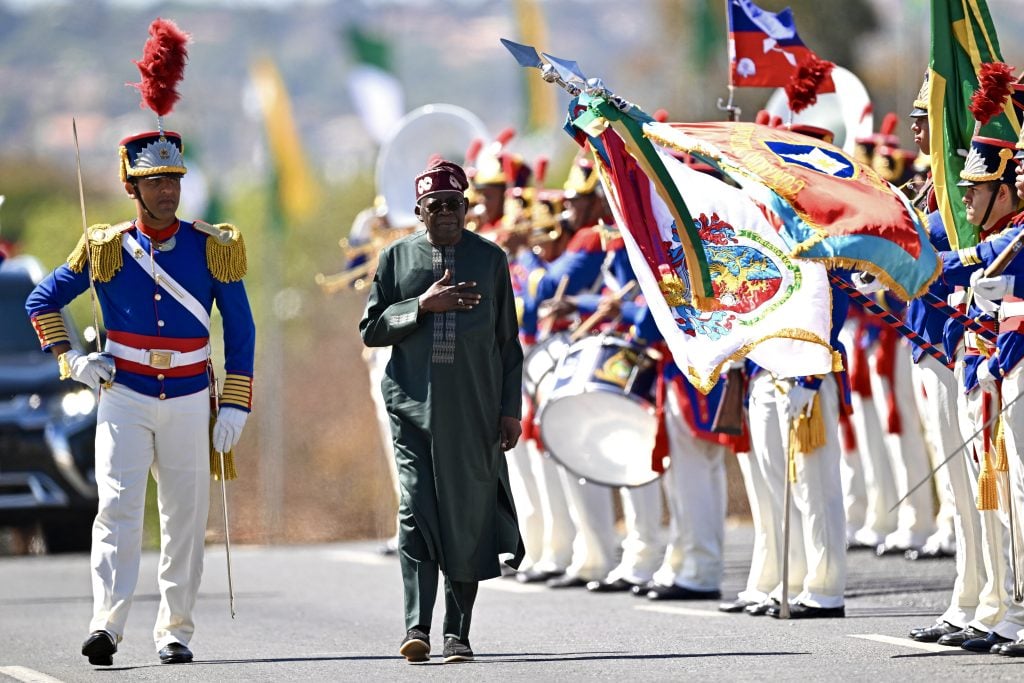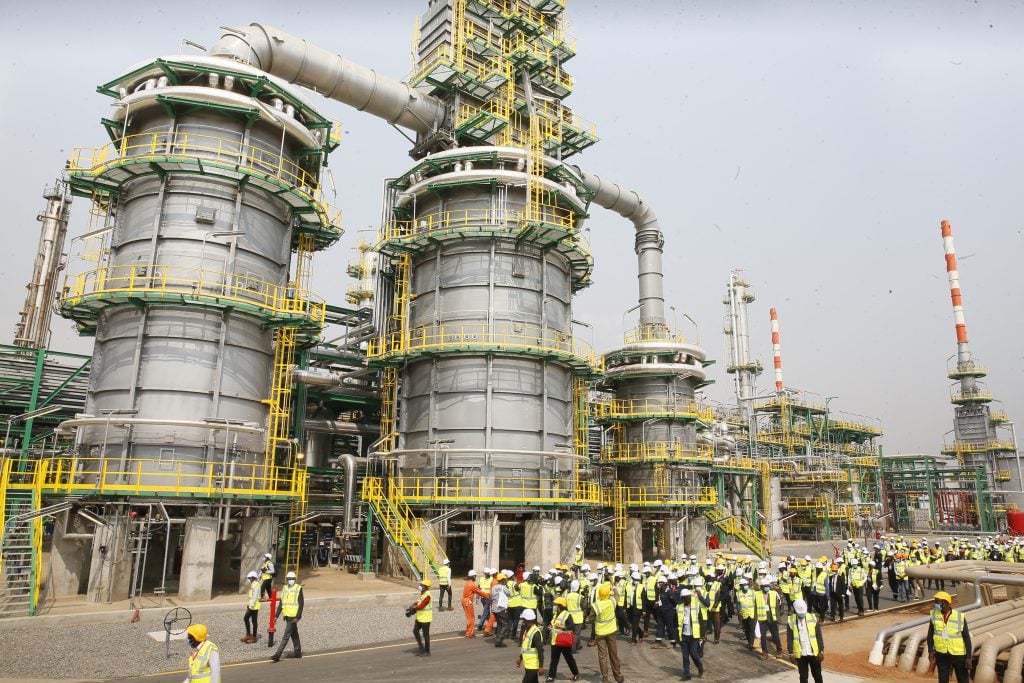
The Nigerian government is pushing back against US President Donald Trump’s claims of mass violence against Christians while attempting to smooth ties with what it regards as a crucial international partner.
On November 1, Trump stunned Nigeria with a message on his Truth Social account accusing the country of allowing the killing of Christians and threatening direct US military action. The claims followed weeks of mounting allegations and lobbying by influential US Christian organisations.
“If the Nigerian Government continues to allow the killing of Christians, the U.S.A. will immediately stop all aid and assistance to Nigeria, and may very well go into that now disgraced country, “guns-a-blazing,” to completely wipe out the Islamic Terrorists who are committing these horrible atrocities,” Trump wrote.
“I am hereby instructing our Department of War to prepare for possible action. If we attack, it will be fast, vicious, and sweet, just like the terrorist thugs attack our CHERISHED Christians! WARNING: THE NIGERIAN GOVERNMENT BETTER MOVE FAST!”
Trump designated Nigeria a “country of particular concern”, denoting a state that the US deems to be engaging in “particularly severe violations of religious freedom.”
While many Nigerians initially reacted to the designation and Trump’ comments with shock and bemusement, President Bola Tinubu moved swiftly to contest Trump’s allegations with a statement on the same day.
“The characterisation of Nigeria as religiously intolerant does not reflect our national reality, nor does it take into consideration the consistent and sincere efforts of the government to safeguard freedom of religion and beliefs for all Nigerians. Religious freedom and tolerance have been a core tenet of our collective identity and shall always remain so. Nigeria opposes religious persecution and does not encourage it.
“Nigeria is a country with constitutional guarantees to protect citizens of all faiths. Our administration is committed to working with the United States government and the international community to deepen understanding and cooperation on the protection of communities of all faiths.”
Nigeria attempts to engage
Senior Nigerian officials are keen to engage Trump administration officials to establish if the US president’s stance – particularly his threat of military action – is meant to be taken literally or is a gambit to appease a domestic audience. Conservative think tanks, Christian organisations and other advocates lobbied hard on the issue, according to US media.
Trump has long positioned himself as an opponent of major US military adventures abroad – although his self-professed ‘President of Peace’ rhetoric has often disguised an inpulsive urge towards short military actions.
While pushing back on Trump’s claims, foreign minister Yusuf Tuggar indicated that Nigeria is willing to cooperate with the US in dealing with the menace of jihadists.
“We remain committed in our resolve to tackle the violent extremism that is fueled by special interests who have helped drive such decay and division in countries across the intersecting West African and Sahel regions,” said a statement from the foreign affairs ministry.
“We mourn all the victims of violent extremism and salute our armed forces as they continue to fight against vicious but cowardly foes….the US has been – and we trust always will remain – a close ally…”
The escalation by Trump has triggered a flurry of diplomatic activities by Nigerian officials keen on averting a confrontation with Washington, according to Eric Orji, a Lagos-based risk analyst.
“We can expect it to end with a meeting between Trump and Tinubu at the White House and the signing of a deal.”
The US is a significant trading partner for Nigeria. US goods and services trade with Nigeria totalled an estimated $13bn in 2024, up 16.5% from 2023, according to the Office of the United States Trade Representative. Goods accounted for $10bn and services for $3bn.
Insurgencies and farmer-herder conflicts drive violence
While Nigeria disagrees with the US charactarisation of the violence, there is a widespread consensus that the country faces severe security challenges, sometimes defined by ethnic and religious dimensions.
Nigeria is split almost evenly between a mainly Muslim north and a predominantly Christian south, many of whom still retain traditional beliefs.
The country has been rocked by periodic uprisings led by preachers of radical Islamist doctrines, including the Boko Haram insurgency that began in 2009. Insurgents have forged alliances with international jihadist groups including Al Qaeda, the Islamic State and Al-Shabaab in Somalia. Islamist violence is estimated to have killed tens of thousands of civilians over the last two decades.
At the same time, predominantly Christian farming communities in central states including Kaduna, Plateau and Benue have faced violence by mainly Muslim herders – an enduring problem which the security forces have struggled to get a grip on.
In June, Tinubu ordered security forces to bring an end to wave of violence in Benue State in which hundreds were killed.
According to International Crisis Group in 2018, while “the conflict is fundamentally a land-use contest between farmers and herders across the country’s Middle Belt,” it has taken on “dangerous religious and ethnic dimensions, however, because most of the herders are from the traditionally nomadic and Muslim Fulani who make up about 90 per cent of Nigeria’s pastoralists, while most of the farmers are Christians of various ethnicities.”






Recent Comments